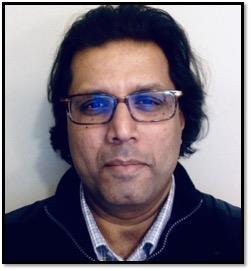-
About
- Departments & Offices
-
Academics
- Public Health
- Biomedical Sciences
- Physician Assistant
- Special Master’s (MBS)
-
Admissions & Financial Aid
- Tuition & Fees
-
Student Experience
-
- Student Resources by Program
- Academic & Student Support
- Wellness & Wellbeing
- Student Life
- Events & Traditions
-
-
Research
- Research Labs & Centers
- Tufts University-Tufts Medicine Research Enterprise
-
Local & Global Engagement
- Pathway & Enrichment Programs
- Global Health Programs
- Community Engagement

Mohan Thanikachalam

Research/Areas of Interest
Cardiovascular Disease Epidemiology:. Currently, Dr. Thanikachalam is the lead investigator at Tufts University for the PURSE-HIS Study, a population-based cross-sectional study in 8,042 South Asians. The study aims to assess the prevalence and cause of overt and sub-clinical endovascular disease in urban, semi-urban and rural communities in India.
Healthcare Delivery: Dr. Thanikachalam's innovations are in the areas of healthcare delivery, technology and talent leverage for cost-effective, continuous and outcome oriented cardiovascular care. He had established a new healthcare delivery model in January 2012 in India for comprehensive, cost-effective diabetes and cardiac care. Future expansion plans in include a chain of Diabetes and Cardiac Care Centers and extension of care at the home level with the use of Mobile Health. Currently, Dr. Thanikachalam is the Medical Director of the Non Communicable Disease Prevention Program, a cost-effective program for prevention of diabetes and hypertension in rural India.
Cardiovascular Device Development: Dr. Thanikachalam had established a biomedical engineering research facility in January 2011 to develop a range of implantable cardiac devices at affordable costs and increase the access to high-end cardiac care. The current products include the development of nitinol-based endovascular devices for the treatment of aneurysms and heart valve disease.
Development of point-of-care technologies: Dr. Thanikachalam led the joint effort (TUFTs and MIT) to develop the ViTrack technology, a first-of-its-kind cuff-less, wearable technology for continuous non-invasive blood pressure monitoring technology. He has led the developed a mobile phone-enabled peripheral neuropathy analyzer for persons with diabetes, which is currently being commercialized. Dr. Thanikachalam was the lead investigator to develop a patch ultrasound sensor as a point-of-care device for home monitoring of extra-vascular lung water for remote management of congestive heart failure. He has been the lead investigator for the clinical validation of other mobile enabled technologies such as, camera-based vital signs monitor, retinal camera, GynecCam and mobile-enabled spirometer. As part of a NIH D43 Global Health Innovations program, he was involved in the efforts to translate some these technologies to address health disparities in underserved populations in the developing world.
Transplantation: Dr. Thanikachalam was involved in basic and translational research to prevent and treat cardiac allograft vasculopathy. Research included the induction of donor organ specific tolerance through mixed chimerism.
Education
- Doctor of Medicine, Manipal University, Manipal, India, 1992